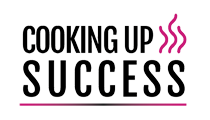There are many misconceptions about going solo in business. We most commonly associate freelancing with people sitting in cafes, sipping coffee, looking relaxed and tapping away on their laptops. The reality is they are frantically chasing invoice payments, organising meetings, writing proposals and doing a myriad of tasks at once. Going out on your own as a solopreneur or freelancer is an individual choice and one not to be taken likely. It’s never a black and white journey but includes several shades of grey!
Large organisations offer employees a safe environment in which to operate, even with all the challenges and politics, and provide benefits including holidays, sick time, pension and training. Additionally, employees are offered support with delivering against business goals by providing a social environment, marketing, sales pipelines, strategic plans and processes to keep the engine churning. These businesses provide the leadership to keep the business in the black – profitable.
Employees are also often given structures that engender personal success – training and development to progress skill sets, mentors to develop capability, bonuses and promotions to reward loyalty and recognise achievements. Some companies even offer career guidance that help employees make informed decisions about their role within the company.
In comparison, running your own business provides none of the above. The freelancer is expected to be all the functions of a business: sales, marketing, operations, finance, customer service, leadership. You’re required to make strategic decisions, prepare your own sales presentations, manage your marketing plan, generate your own sales conversations – alone.
Making the decision to become your own boss can be rewarding, scary and exhilarating all at the same time.
You’ll need a strong grasp of your key business offering, your strategy, (some) luck and a lot of self-awareness to help you articulate your differentiators. Understanding the risks and rewards of freelancing are important and there are no hard and fast rules as to how you go about it. Learning how to maximise your chance of success will help you prepare for all outcomes.
What stopped me going solo initially? Lack of guaranteed salary and FEAR. What if freelancing didn’t work? I had no one to support me so if it went wrong it was on my shoulders.
So what made me jump into the unknown? A number of factors, but mainly the drive to create my own destiny, give something back and finally pursue my dream that I had dabbled in for years. Was the transition easy? Yes and no. I’ve been on a two-year journey creating my recipe for success – my portfolio career – and there have been highs and lows, as most new businesses experience in the early stages of trading. Here’s my take on the risks and rewards that all would-be freelancers should consider before taking the plunge:
| REWARDS | RISKS |
|---|---|
| Flexibility: creating your own work schedule | No benefits: no pension, sick pay, no paid holidays, etc |
| Increasing your pay | Work is never guaranteed |
| Setting up a Limited company has tax benefits | You are responsible for your taxes |
| No company politics | Isolation |
| No commute | Lack of structure around working hours |
| Strong network gives you a safety net | Make sure you buy insurance to cover sickness or injury |
| Having the choice to work the projects you want | You are responsible for your own sales pipeline |
| Master of your own destiny! | You are responsible for invoicing, admin, everything that running a business encompasses! |
| Better work/life balance | Longer working hours because you take the work when it is available! |
| No commute | Lack of structure around working hours |
Given the above, it could be very easy to stay as an employee in the comfort of an office with people around you all day to help support and drive each other forward. However, there are lots of pros to going freelance or setting up a business, otherwise why would so many people in today’s economy be choosing this route?
So my advice to anyone considering freelancing as a career choice?
- Do your research. Preparation is key. Whether you’re looking for that better quality of life or planning to take over the world, be sure you know what working for yourself means short and longer term.
- Make sure you understand your offer, unique proposition and your core audience. What experiences from your career to date will you use to take yourself to market and establish your presence?
- Talk to an accountant and get a complete overview of your finances. Sometimes this process may make you realise you are not ready to quit your job just yet. Use your spare time to refine your business ideas and goals.
- Understand your key drivers and values. Can you face sourcing business, chasing unpaid invoices, managing your own diary, writing your own proposals, and not working in an office environment every day? If not, what are the ways you’ll overcome these barriers?
- Have fun making your dream a reality. You’re about to embark on a remarkabFreelancle journey. It’s going to be hard work, but it should be fun too right?

